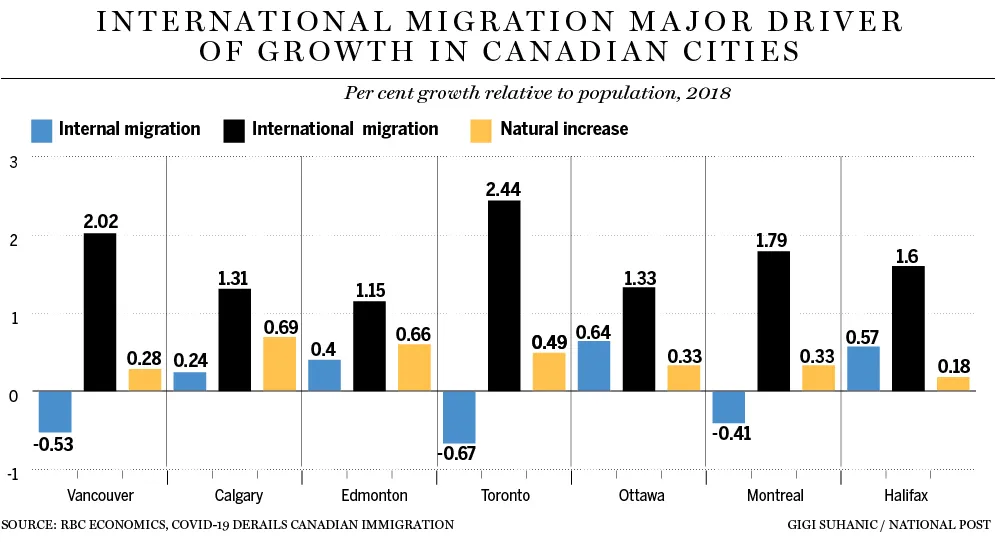

Canada's Immigration Model Faces Challenges as Unemployment Surges
Canada is renowned for its immigrant-friendly policies, offering a pathway to permanent residency and citizenship to foreign students who pursue higher education in the country. This system appears mutually beneficial, as foreign students contribute financially to Canada's education sector while also seeking long-term settlement in the country.
However, there's a catch.
Many foreign students find themselves in need of employment to support their studies in Canada. Without Canadian credentials, they often resort to low-paying jobs in sectors like fast food, hospitality, and other roles requiring irregular hours.
Yet, Canada is currently grappling with a rising unemployment rate and a tightening job market. The surge in immigration, which has led to the fastest population growth in 67 years, is exacerbating these challenges, particularly for international students.
With over one million foreign students in Canada, primarily engaged in low-wage, part-time work, social media is awash with images of long queues outside establishments offering even a single job vacancy.
The unemployment rate in Canada has been gradually climbing, reaching 6.1% in March, with youth unemployment nearly double that figure, according to official government data. This trend is partly attributed to the rapid population growth driven by immigration and the influx of temporary residents, including seasonal workers and foreign students.
In a public statement, Prime Minister Justin Trudeau acknowledged that his government's approach of addressing labor shortages by admitting record numbers of immigrants and temporary residents had overshot its intended outcome.
Trudeau cited statistics indicating a significant increase in the proportion of Canada's population comprised of temporary immigrants, emphasizing the need to recalibrate immigration policies.
Statistics Canada reported a remarkable surge in the country's population, the highest since 1957, with immigration accounting for nearly all the growth. While immigration has helped alleviate post-pandemic labor shortages, it has also intensified pressures on housing affordability and healthcare services.
Trudeau reiterated the government's commitment to maintaining levels of permanent residency while advocating for greater control over temporary immigration, which has strained communities.
International students, who are promised employment opportunities and a path to citizenship upon graduation, have played a pivotal role in Canada's rapid population growth. Despite having a similar number of foreign students as the United States, Canada's population is significantly smaller, indicating the scale of international student enrollment.
These students, who pay substantially higher tuition fees than domestic students, are a crucial source of revenue for Canadian universities.
However, in response to mounting concerns, the government has announced new limits on the intake of foreign students and plans to reduce the overall number of temporary residents.
For foreign students seeking part-time work in Canada, regulatory restrictions on employment eligibility and working hours pose additional challenges. Many students end up settling for minimum wage jobs due to their lack of Canadian qualifications and work experience.
The decision to curtail student visas is anticipated to strain the finances of institutions like the University of British Columbia (UBC), where international students constitute a significant portion of enrollment.
Ontario, in particular, has adopted stringent measures, granting 96% of foreign study permits exclusively to public universities and colleges, while Quebec's provincial government has been urged to halt all temporary immigration to Canada.
In conclusion, while Canada's immigration policies have historically been lauded for their inclusivity, rising unemployment rates and a swelling population underscore the need for a balanced approach to immigration and labor market demands.
Having an 'Identity Verified' badge or being 'Identity Verified' simply indicates that an individual has submitted information to complete our identity verification process or we have conducted internal verification using various authorized websites. While this process includes safeguards, it does not guarantee that the person is who they claim to be.
If you encounter any issues with this profile, please report them here. While all consultants who are verified have RCIC ID, we may not have the latest data in terms of their renewal/cancellation/discontinuation of their RCIC ID.
The "Verified Consultants" profiles are created using publicly available information, including data from the IRCC website, official consultant sites, other listing platforms, and social media. Immiperts.com is an independent platform, not affiliated with IRCC or any registered immigration consultants. To update, claim, or remove your profile, please contact us at hello@immiperts.com.
╳